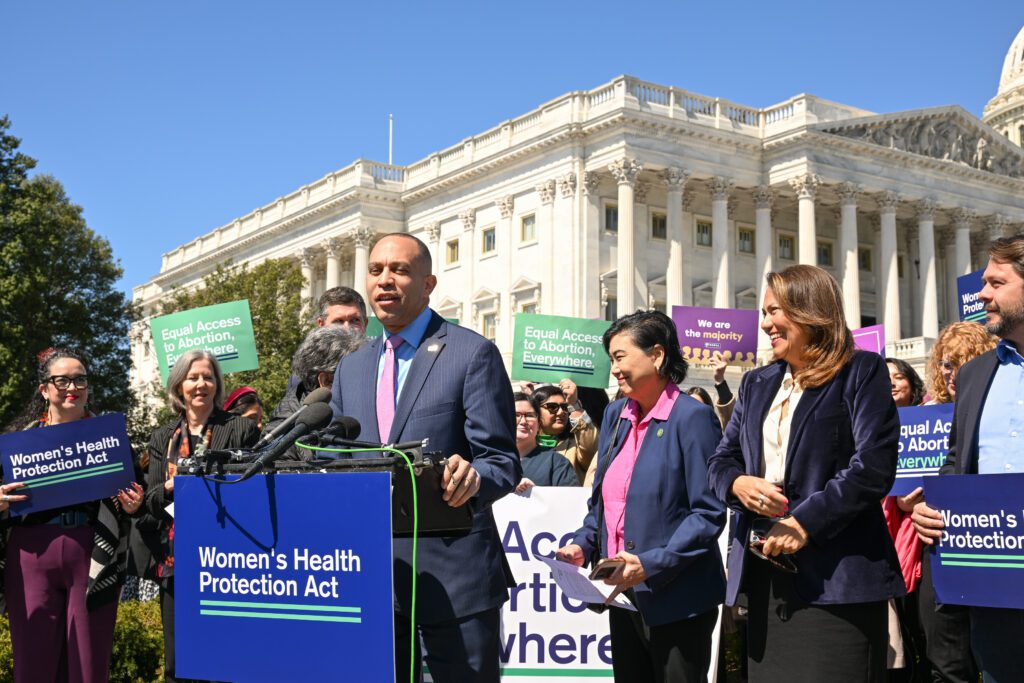Houston Mayor and City Council Members Call for Passage of Federal Women’s Health Protection Act, Repeal of Texas HB2
Houston elected officials join leaders in Austin, San Francisco, and Dane County, Wisconsin, in publicly supporting reproductive health and rights
(PRESS RELEASE) In the wake of devastating attacks on critical women’s health care by Texas politicians, Houston Mayor Annise Parker and eight members of the Houston City Council urged the U.S. Congress to pass the federal Women’s Health Protection Act (S. 1696/H.R. 3471)—a bill that would prohibit states like Texas from imposing unconstitutional restrictions on reproductive health care providers that do not apply to similar medical professionals, interfere with women’s personal decision making, and block access to safe and legal abortion services.
In the letter (attached) sent to Congress and the Texas State Legislature, Mayor Parker, Mayor Pro-Tem Ed Gonzales, Vice Mayor Pro-Tem Jerry Davis, and Council Members Stephen Costello, David Robinson, Ellen Cohen, Robert Gallegos, Mike Laster, and Larry Green also called for the immediate repeal of House Bill 2 (HB2)—the omnibus state law passed last summer that has that has shuttered scores of clinics and left large swaths of the state without access to a reproductive health care clinic that offers abortion services. The final provision of HB2 – which requires every reproductive health care facility offering abortion services meet the same building requirements as ambulatory surgical centers (ASCs) – is set to take effect on September 1 and threatens to leave fewer than ten abortion-providing clinics in the state.
“As City Council Members, it is our duty to protect our constituents,” the letter states. “Houston residents and those who may come to Houston should have access to safe, legal reproductive health care.”
Said Nancy Northup, president and CEO of the Center for Reproductive Rights:
“Community leaders in Houston are fighting back against state politicians’ attacks on women’s healthcare because they are witnessing firsthand the very real and devastating impact it is having on the women and families in their community.
“The Women’s Health Protection Act would ensure that politicians in states like Texas couldn’t unfairly target reproductive health care services and providers as a way to roll back our constitutional rights. Whether you live in Houston or Austin or New York City, we all live under one constitution with one set of rights.
“We applaud Mayor Parker and the Houston City Council members for speaking out on behalf of their community, and call on elected officials across the U.S. to match their commitment to women rights, health, and well-being by urging Congress to pass the Women’s Health Protection Act.”
Houston is now the second Texas city to demand the repeal of HB2, with members of the Austin city council issuing a similar call to action in January. In addition to Houston and Austin, San Francisco and Dane County, Wisc. have also called on Congress to pass the Women’s Health Protection Act.
The Women’s Health Protection Act (S 1691/HR 3471)—which was introduced last fall by Sen. Richard Blumenthal, Sen. Tammy Baldwin, Rep. Judy Chu, Rep. Lois Frankel and Rep. Marcia Fudge—currently has 35 Senate sponsors and 128 sponsors in the House.
The Center for Reproductive Rights is currently involved in two challenges to Texas’ House Bill 2 (HB2), a sweeping package of anti-choice legislation which was passed last summer. The first suit challenges the law’s unconstitutional admitting privileges requirement as it applies to all clinics in the state, as well as its onerous restrictions on medication abortion. While the medication abortion provision was largely upheld by the federal district court, the admitting privileges provision was initially struck down, but then later took effect on October 31, 2013 after a decision by the Fifth Circuit to stay the lower court’s injunction. The same appellate court later upheld both provisions—the results of which have been nothing short of devastating, closing clinics across the state and leaving thousands of women already facing extremely limited reproductive health care options due to drastic family planning cuts in 2011 without access to health care. The providers now await a decision whether the full Fifth Circuit will rehear the case and review the constitutionality of the admitting privileges requirement and the lack of a health exception in the medication abortion restrictions.
In April 2014, the Center for Reproductive Rights filed an additional lawsuit against HB2, seeking to block the admitting privileges requirement specifically as it applies to two clinics—Whole Woman’s Health in McAllen and Reproductive Services in El Paso—that are among the last, if not the only, reproductive health care providers offering safe, legal abortion care in their communities. Whole Woman’s Health in McAllen has been unable to provide abortion services to their patients since the admitting privileges requirement took effect in November 2013 and earlier this year closed its doors entirely, leaving the Rio Grande Valley without an abortion provider and continuing to force women to travel 300 hundred miles roundtrip to the next nearest clinic. Whole Woman’s Health also recently announced they will be closing their flagship clinic in Austin as a result of HB2. In El Paso, Reproductive Services was also forced to close their doors due to the admitting privileges requirement.
The second suit also seeks to strike HB2’s provision that every reproductive health care facility offering abortion services meet the same building requirements as ambulatory surgical centers (ASCs), a provision scheduled to take effect in September 2014 that would leave fewer than 10 clinics in Texas and force many women to endure a roundtrip of more than a thousand miles or cross state lines to access safe and legal abortion services. The trial in the second challenge was held in federal district court just last week, with closing arguments scheduled for Wednesday, August 13 in Austin.

